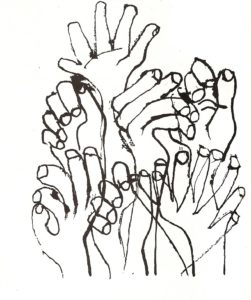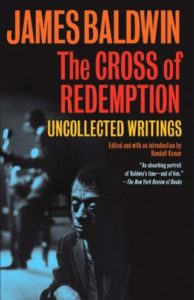Goodness
One precious life.
April 1, 2020[Post by Robert Ellsberg]
‘She kept a diary, not simply as a distraction but as a duty, a responsibility to render her experience and her feelings in the most accurate terms. Along with the everyday experiences of a young girl confined indoors she recorded very unchildlike reflections on her perilous life.
“I see the 8 of us with our ‘Secret Annex’ as if we were a little piece of blue heaven, surrounded by heavy black rain clouds. The spot where we stand is still safe, but the clouds gather more closely about us and the circle which separates us from the approaching danger, closes more and more tightly.”
Nevertheless she believed it was her duty to maintain her courage, cheerfulness, and belief in the essential goodness of people, and to uphold her ideals,
“for perhaps the time will come when I shall be able to carry them out.”
While acknowledging the suffering that surrounded her “piece of blue heaven” and the approaching thunder “which will destroy us too” she thanked God for “all that is good and dear and beautiful” and maintained her faith in a better world.
Rarely has anyone so well defined the virtues needed in our age as this 14-yr-old already living under sentence of death. She was one of those in a dark age whose task is to maintain a candlelight of humanity as a guarantee that darkness does not have the final word.’
Roberts Ellsberg is publisher of Orbis Books. His dad, Daniel, gave us The Pentagon Papers. He knows a bit about patriotism, duty, and hope.
‘To do the right and love goodness.’
August 2, 2019You have been told . . . what is good
And what the Lord requires of you:
Only to do the right and to love goodness,
And to walk humbly with your God. (Micah 6:8)
╭ღ╯
“It has always been much easier (because it has always seemed much safer) to give a name to the evil without than to locate the terror within.”
“We ought to try, by the example of our own lives, to prove that life is love and wonder and that that nation is doomed which penalizes those of its citizens who recognize and rejoice in this fact.”
Timeliness from Baldwin, born on this day in 1924.
“I can conceive of no better service,” Walt Whitman wrote, “than boldly exposing the weakness, liabilities and infinite corruptions of democracy.” Nearly a century later, James Baldwin (August 2, 1924–December 1, 1987) — another poet laureate of the human spirit — embodied this ethos in one of his shortest, most searing, and timeliest essays.
“We are living through the most crucial moment of our history, the moment which will result in a new life for us, or a new death… a new vision of America, a vision which will allow us to face, and begin to change, the facts of American life… This seems a grim view to take of our situation, but it is scarcely grimmer than the facts. Our honesty and our courage in facing these facts is all that can save us from disaster. And one of these facts is that there has always been a segment of American life, and a powerful segment, too, which equated virtue with mindlessness… It always reminds me of a vast and totally untrustworthy bomb shelter in which groups of frightened people endlessly convince one another of its impregnability, while the real world outside — by which, again, I mean the facts of our private and public lives — calmly and inexorably prepares their destruction.”
“We must dare to take another view of majority rule… taking it upon ourselves to become the majority by changing the moral climate. For it is upon this majority that the life of any nation really depends.”
https://www.brainpickings.org/2018/08/02/james-baldwin-a-quarter-century-of-un-americana/



